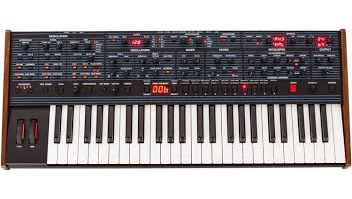"If the Porsche 911 is the platonic ideal of a sports car and the Submariner Rolex is the ideal of a watch, the Juno 6 is that for The Midnight – it's in its beating heart": Tyler Lyle talks essential gear, sax appeal and taking synthwave on the road
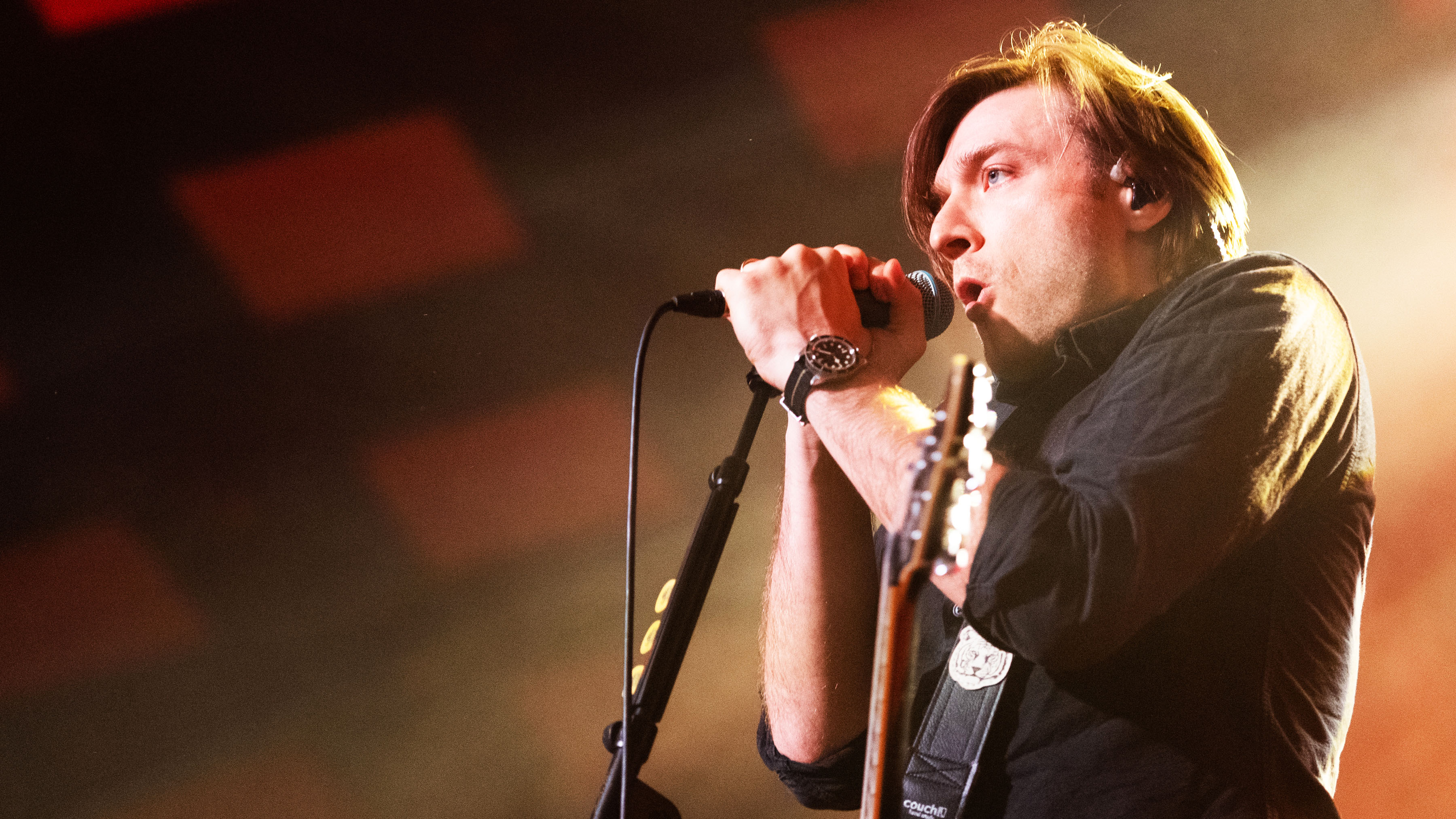
Want all the hottest music and gear news, reviews, deals, features and more, direct to your inbox? Sign up here.
You are now subscribed
Your newsletter sign-up was successful
Tyler Lyle is hard to pin down musically; he's a guitarist and pedal fanatic who dabbles deeply in synths and modelling amps. He's the vocalist and co-writer with synthwave's most successful touring band, The Midnight. But he has a whole other side as a pysch-Americana songwriter that predates all that, and continues to grow with new albums and shows. So talking about gear with Tyler is always going to be interesting and unpredictable.
Tyler and his Midnight co-founder Tim McEwan are now going from strength to strength as a recording and live act, with an expanded line-up of musicians you can see on tour in the US and Europe this year, including their first UK festival headliner alongside Tesseract, Dirty Loops, Plini and Leprous at the Radar prog and rock festival in Manchester on 26-28 July.
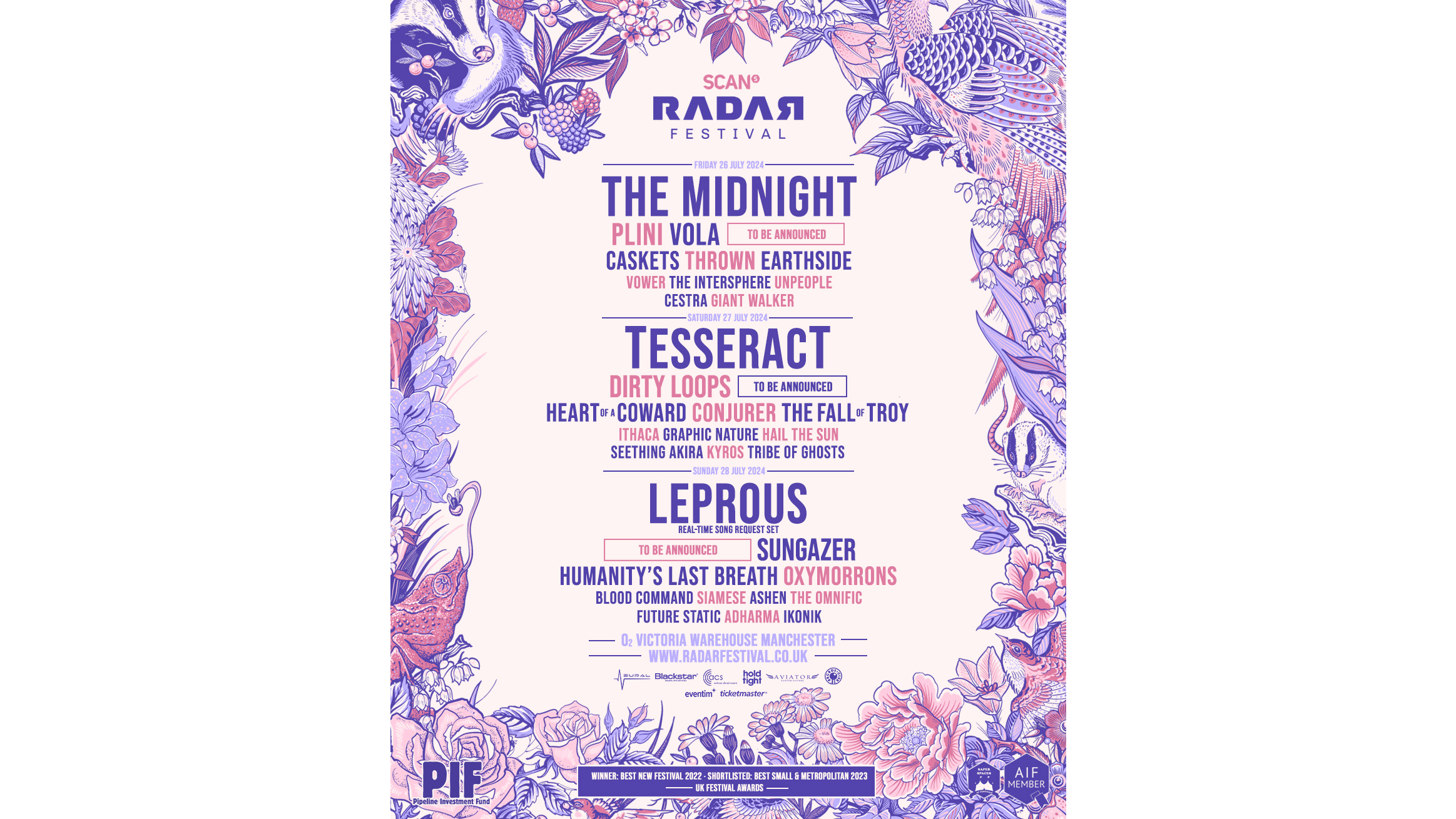
"We started at London Scala for two nights and then we were at the Roundhouse, and then we were at Brixton [Academy]," says Tyler of the US-based act's UK journey. "The progression of things has been very quick. There's Radar and we're also doing a European tour next – we're going to smaller towns than we've been before and we're very excited because the UK has been great for us."
We kind of like the freedom of movement to bring everybody to the party
An eclectic festival like Radar makes sense for The Midnight as they seem to draw fans from the electronic and rock worlds.
"Yeah, we feel very lucky," acknowledges Tyler. "It's hard to pin us down on a specific genre. It's one of the things that makes it hard for licenses [with our music] on TV shows because we just sound like something totally different than what's out there. So sometimes it's a blessing, and sometimes it's a curse, but we kind of like the freedom of movement to bring everybody to the party."
Anyone who has followed the group as it's developed in a touring iteration playing progressively bigger shows will know there's this positivity around The Midnight both in the crowd and from the musicians too – it seems like a really fun band to be in.
"Yeah, I call it an intentional community on wheels," says Tyler. "It's like a small neighbourhood of people all living in little coffin-shaped bunks on a bus, hurtling through the various continents at breakneck speed. Yeah, we love each other very much, and it's it's a blast to get to travel with those guys."
Want all the hottest music and gear news, reviews, deals, features and more, direct to your inbox? Sign up here.
A post shared by the midnight (@themidnightofficial)
A photo posted by on
The Midnight had a busy 2023 but you also managed to get a solo album done called The Transcendentalists Part 1 – is there a Part 2 coming?
"There's a second part. I'm kind of debating what to do now as my home is currently under renovation in Atlanta, and I'm living with my wife and son in my music studio. Part 2 has been recorded but whether or not there's a part three, I guess depends on whether or not the renovation gets done on time."
Did you have a huge body of work written that you then divided up for these albums?
"This thought started when I found out that I was going to be a dad. And all of a sudden, instead of being just against authority, on principle, I had to become the authority for one small child and had to kind of be the bridge between the world at large and try and help him become a good person. So I started thinking pretty deeply about it and I read a lot, trying to try to figure out what what I wanted this world to be for this little child.
"I think the world breaks into kind of four different categories, and this is not my thought. This is basically every religion and you know pseudo-philosophy that there's a spiritual dimension, a mental dimension, an emotional dimension and a physical dimension to life. You can't do it well if you ignore any of those, but to kind of master all those realms takes more than a lifetime. So the transcendentalists as a project for me, the spiritual realm and the mental realm are the two kind of concepts that I've released in part one. The other two, being the emotional and the physical will be the next part for me."
Something that really comes through on your solo albums and in The Midnight are your vocal melodies – they're always so fresh. It reminds me of Paul Simon in that way, but is it a conscious thing? Do you fight for that by going through different vocal melody ideas for songs, or is it a natural instinct?
"It's not something that's conscious. But I have mainlined more Paul Simon than probably any other person on earth! Paul Simon is, as you know, he's a king in the canon of singer-songwriter music that I just listened to so much.
"Townes Van Zandt, and Lucinda Williams, John Prine and Randy Newman and Bob Dylan, of course, plus Bruce Springsteen. And I don't know, somewhere in there, there was a voice that is part mine and part theirs, and so wherever that leads, I've just been doing it long enough that it's kind of become its own thing. Hopefully."
Are people quite surprised when they hear your solo music after becoming familiar with The Midnight?
"It's funny how split it is. Some people are very impressed and are down to take the journey and some people are very put off with the lack of synthesizers, and no saxophone to speak of. So it's an interesting reminder that the way you set the stage, the way that you present yourself, is such an important part of the presentation of what you're trying to do.
"If you produce something in a very different way people have a hard time conceptualising it. Which is funny to me because it's my voice, these are my songs. It's a slightly different modus operandi in terms of themes and the way the songs are written but it's got my DNA on it. Some people just experience music it so vastly differently. And I think that's beautiful, and a good reminder that I should pay more attention to, you know, packaging!"
I'll be honest, I'm a late convert to being a saxophone solo fan and I think you guys have been key to it. With The Midnight live, the sax playing really comes into its own – and I think it might win a lot of sax doubters around.
"It's so undeniable to see live. Justin Klunk has been our saxophonist for the last few years and to see him up in the front of the stage… there's always somebody that's just staring up completely transfixed at the sax solo.
We love the saxophone
"It's a kind of magical moment that I've never seen outside of a sax solo. A guitar solo can be impressive – you feel it in your gut – but there's something about the sax solo that just blows the mind. I see fans' pupils dilate and they're having almost a drug experience totally sober. So we love the saxophone, and people don't believe it when we say that we don't get tired of it. But like every night when Klunk does Vampires it's just it's as much fun for us as it is for the audience."
There are reports of inflatable saxophones in the crowd at your shows – is that something you encourage?
"Yes, absolutely. People have been doing it for years. And it kind of caught on. I don't know if somebody found a link for bulk inflatable saxophones or something but more and more people have been bringing them so we thought, well, we'll just buy some from China and print our our name on it and sell them for a few bucks at the shows as well.
"We'll see if we bring them to the to the UK. But yes, we love it. And there's always a moment where Justin Clunk hands an inflatable saxophone [to someone] and does a sax duel during a solo."
And you extend some songs live to widen the scope of the sax and guitars even further.
"Yeah, in terms of musicianship, I'm – I don't know what the UK version of like a Ford Focus is, but like a very, very basic run-of-the-mill car – that's what I am. And we've hired Royce [Whittaker, guitars] and Justin, who are Ferraris and Porsches with their instruments. So I selfishly just want to hear them play. We want to make it as much fun for ourselves as we can. And hopefully that makes it fun for the audience as well."
You're very modest about your own guitar playing but you have this really interesting folk acoustic style that we hear in your solo music, but onstage with the Midnight it's interesting watching you because you're not and filling the sound with guitar – your parts are really selective and supportive of the other instruments. That's a pretty difficult concept for some guitar players to get their heads around. Was moving into that kind of role a process for you as a frontman and a guitarist?
"It's a very astute question – I appreciate it very much. When it was just the three of us – Tim, our saxophonist Jesse Malloy at the time, and me, I was in charge of trying to figure out these guitar solos that had been written for the record, but not played by me. And as a folk guitarist of 20 years I just never gained that skill. And so it was terrifying.
It's a bit like playing a pad on a synthesizer – you turn the delay up and the reverb up and you just fill out that space a little bit
"I remember just the solo for Lost Boy – I was just jumping off the edge of a cliff every night and then screwing it up. And thinking, well, this is not who I am. It's not what I can give best. So when we added a [live] guitarist, I thought, well how can I be supportive? I think one way is just to find the shape and add nice colours.
"It's a bit like playing a pad on a synthesizer – you turn the delay up and the reverb up and you just fill out that space a little bit. It's not a featured part but I think it adds kind of another blanket of warmth in the room. It just adds another layer.
"So I appreciate that you notice that it's just not fun to play cowboy chords on those songs. It wouldn't work, and I'm still learning. It's still very much a skill that I care about."
A post shared by Tyler Lyle (@tylerlyle)
A photo posted by on
We spoke to you before your last album Heroes was released and you mentioned you had got a Neural Quad Cortex, is that still in the rig for shows and if so, how has it worked out so far for you?
"I really like the Quad Cortex. We started with the Kemper for our first tour instead of buying a Twin Reverb and a pedalboard and going through that whole thing, essentially, these were just presets on a Kemper. And that worked well.
I love the Quad Cortex, it gets you about 80% of the way
"I remember my early days, even though I never got good at electric guitar, that the burden of the gear was just so much. Over the pandemic I got really into guitar pedals and bought my amplifiers and bought way more pedals than I should have and tried to dial in a sound that felt like mine. And I love the Quad Cortex, it gets you about 80% of the way. Maybe it's my own fault for not having the patience to sit with the modulation and the delays, but the effects leave a little bit to be desired.
"Personally, I love the Quad Cortex as a modeller and as an amp profiler – it's incredibly convenient, but I still love the pedals. There's some gearhead in me that just wants to punch the buttons. So I have stereo delay and stereo reverb and stereo chorus on the 'board with the quad cortex. Unfortunately, I'll have to lose it when we go to India next month, for space reasons, but it's still very nice to be able to get 80% of the way there in basically the size of three pedals."
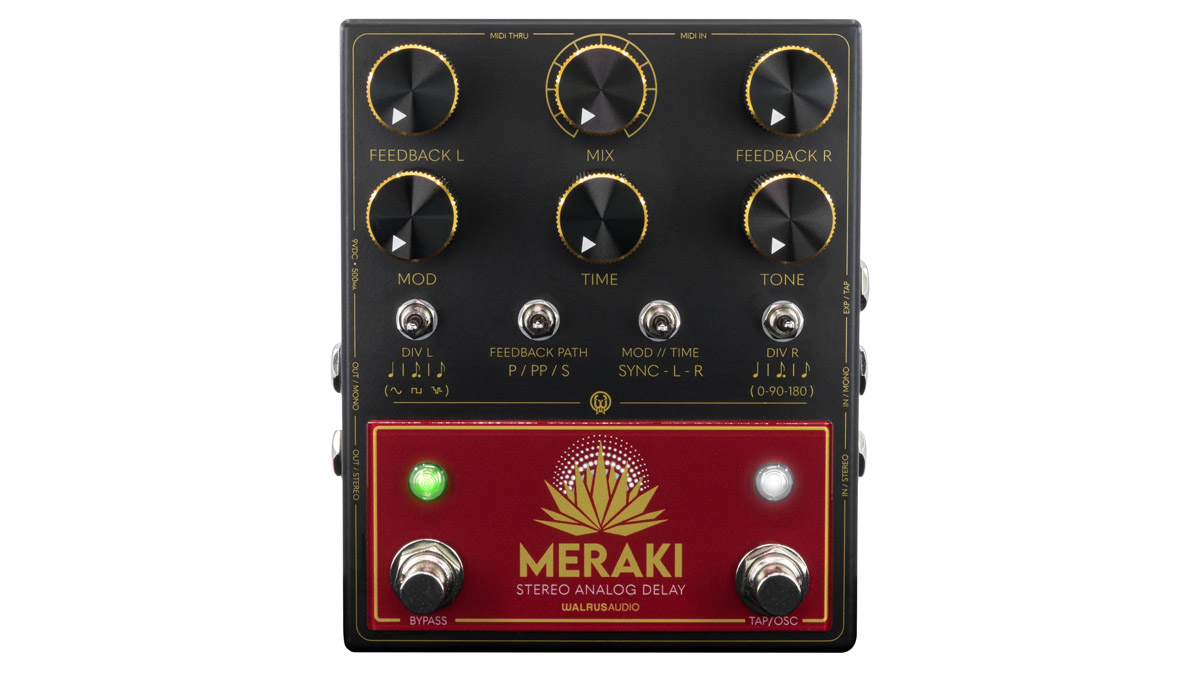
What are those pedals you're using alongside it?
"I'm using the CXM 1978 Chase Bliss reverb unit – it's based on the Lexicon 224. Walrus just made a true stereo bypass delay – the Miraki. Most delay pedals sum to mono but because the signal comes out stereo from the Quad Cortex I didn't want it to sum to mono. Especially as it's coming out of the Quad Cortex and into the reverb and delay.
The Miraki is a really amazing pedal
"The Miraki is a really amazing pedal. It first became available on Black Friday and I have a good relationship with them but it's an expensive pedal, it does an expensive thing well so I put my money into it.
"I did a New Year's Eve gig with it and it was just awesome. It was so rich and it does the full stereo spread and it's just lovely. To do what I'm trying to do with the guitar layer, you want it to be a little bit washy and you want to use true stereo to its fullest effect. This is a hard thing to do because it's easier to build the pedal in such a way that it sums to mono. I have the [Strymon] Volante as well which was on my 'board previously. And it's great. There's something about the immediacy of the Walrus stuff, and Strymon.
"I also have a CE3 – the Boss chorus pedal, that I'm currently having modded."
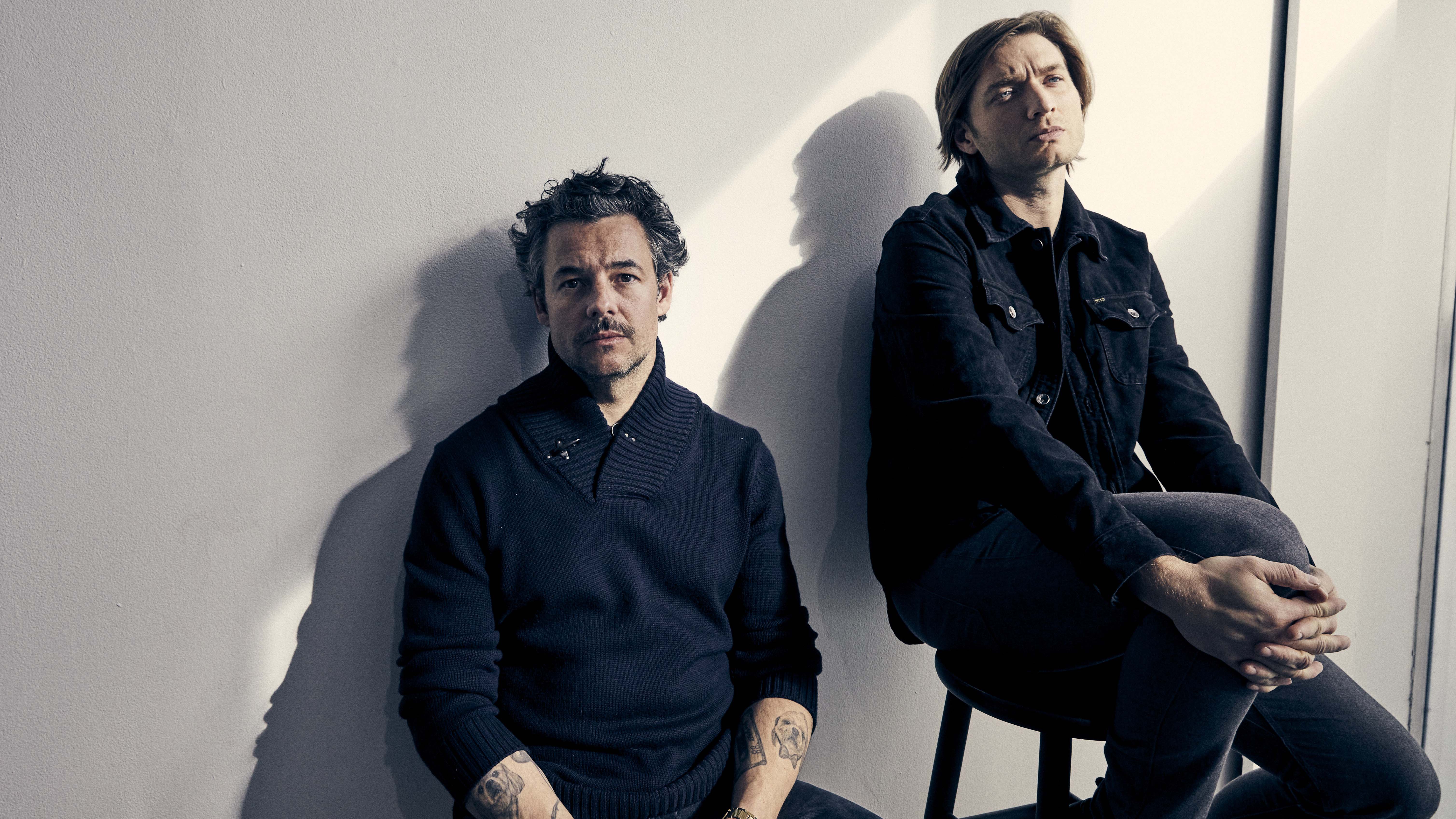
Has using in-ears live with The Midnight changed your view of amp modelling vs tube amps? Does it change what you expect from amps?
"Honestly, I think the amp modellers are doing a great job because every room is different. So I can bring my Twin Deluxe Reverb into a room and you just have to dial it in to find the sweet spots and dynamic every time, and there's something fun about that challenge. But there's also something really nice about having something like the Universal Audio Dream pedal that always gets the sweet spot. Then you let the mix engineer out front find where to put it in the mix.
No one in the audience is going to be able to really tell the difference – not even probably a 5% difference
"So I think it's, on the whole, a better approximation, but there is something about the chase that I like – every room is a little different and it demands something. So it demands your attention in a new kind of way every time. I think for live music, no one in the audience is going to be able to really tell the difference – not even probably a 5% difference. So you know so all the burden is kind of on the mix engineer anyway."
Does it feel different to you onstage compared to a tube amp?
"The Midnight's always been had in-ears so the amp never felt 'live' anyway. I've played in other rock bands where I've had amps on stage but it was just never quite the same production value, so I don't know really how to speak to it. I would love to experiment with wedges for smaller shows but on the whole in-ear monitors are better long-term for my hearing. It's probably the compromise I'll have to make."
Phil-X from Bon Jovi was saying recently that he finds some overdrive pedals don't work well with in-ears. I know you're a fan of Marshall pedals like the Bluesbreaker and the Guv'Nor so I was interested in getting your take on that.
"I don't use drive very much. I'll use it to sweeten but I don't overdrive it. That is Royce's department. So, for The Midnight I don't even mess with something like an overdriven Bluesbreaker. I just use it to sweeten, but I do have the [JHS Pedals] Morning Glory as overdrive tones that are [profiled] in my Neural Quad Cortex. So and it's not exactly the same but it's close enough."
Are you using a Fender-type amp model in the Quad?
"I use the Roland Jazz. It's just a little more transparent instead of having to roll off so much of the gain. I find that that's just kind of the easiest to work with as a default template."
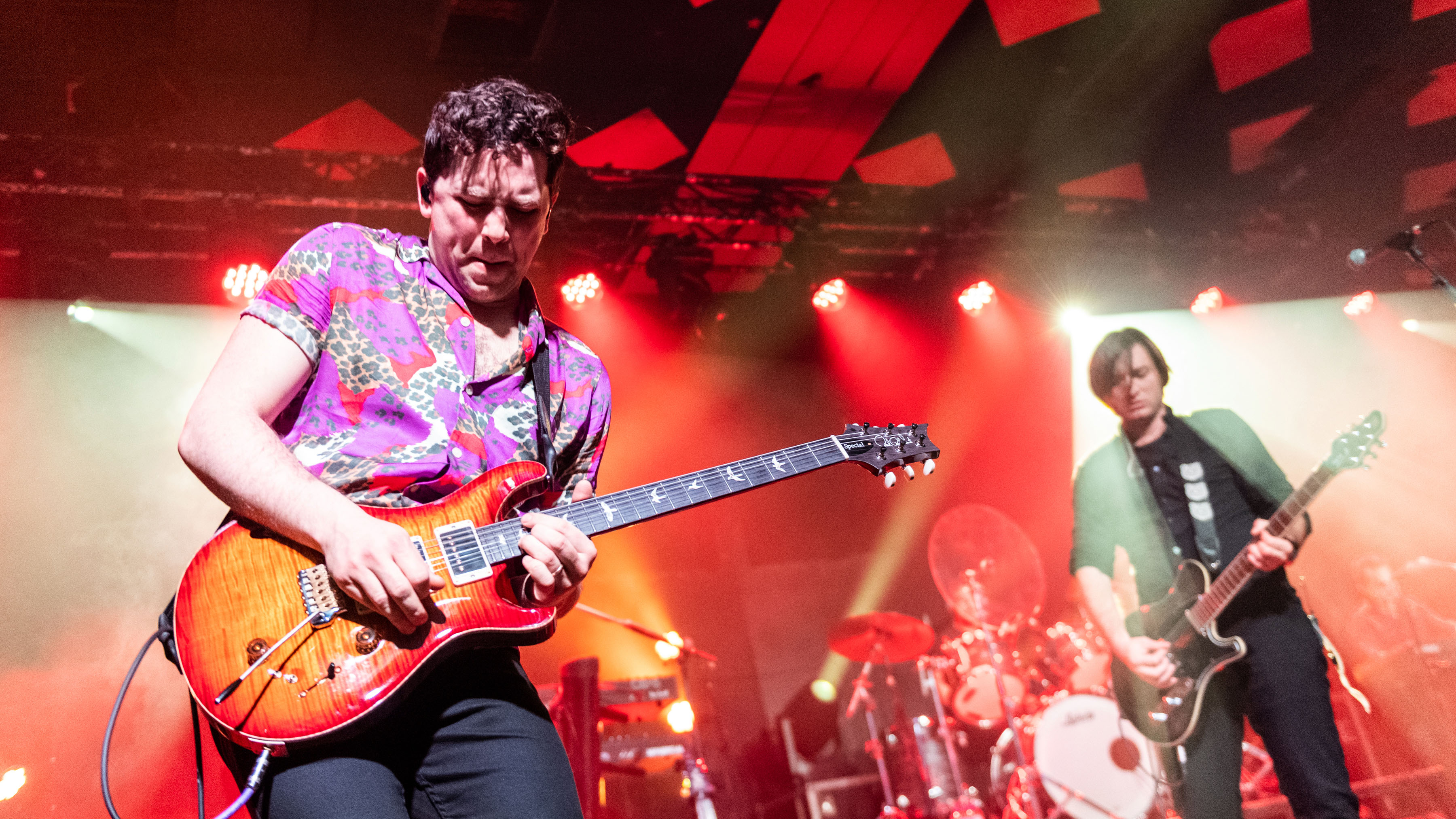
I also saw on Instagram that you had the Chroma Console from Hologram Electronics, are you using that as a creative tool in the studio?
"I had no idea they were based out of Knoxville, Tennessee, which is very close to where I live. There are certain pedals – the Strymon BigSky, or the TimeLine – these delays and reverbs that you can just go to the bottom of the earth with and get as granular and detailed as you want. With the Chroma Console, it's five different effects. And you can't use multiples of the same kind – you have to choose a time-based and a modulation-based and a gain-based side. So it's it's a little more like my process.
"I think of myself more as like a journalist just trying to capture something quickly. Whereas Tim's a perfectionist – he's trying to dial in on all the elements in a way that is perfect. He's trying to get from 98% to 100%. And it takes him just as long as it does for me to get from zero to one.
"So there's something about the Chroma Console – the workflow in it's just dynamic, and creative and fun. They keep you from being too bogged down by not giving you more choices. So I love it. I think it's a great piece of gear and it's really fun. It's not the perfect pedal for a Midnight guitar 'board, but it is the perfect pedal to put on top of my Fender Rhodes. And I have the whole palette at my fingertips."
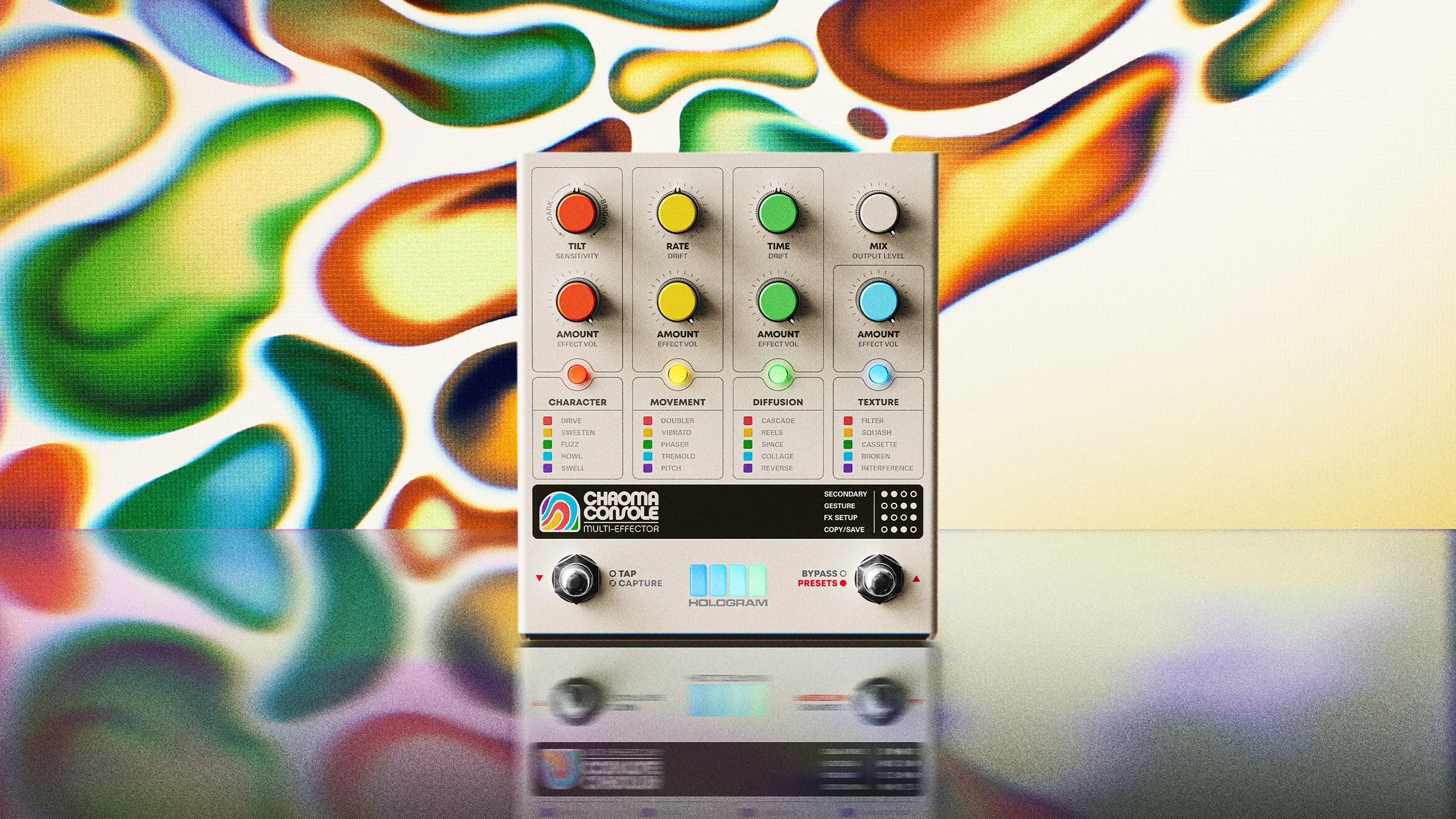
What's next for you with Tim in The Midnight on the writing and recording side?
"I'm going to LA next week to continue, hopefully to finish – we're 75 to 80% of the way done on our next record. I'm not sure if it'll come out this year or next but we'll start to release singles hopefully starting around summertime – hopefully around the time we're in the UK.
"It's a new direction for us in some ways thematically. Sonically, it's a little bit darker, a little heavier – a little more electronic, dancy – some throwbacks to kind of the matrix era with digital filters and things like that. It'll be more of a successor to something like [2017 album] Nocturnal."
Wow, there's going to be a lot of fans excited to hear that.
"Well, we pushed them a little bit with Heroes. We're going back to the basics a little bit.
"We're excited, we're very excited. And we're announcing a graphic novel [this is called Shadows and has since been announced for an October20124 release - preorder here]. We're partnering with Dark Horse Comics. It's done, it's amazing and it extends the world of The Midnight in a way that songs just can't. So we're very excited about that.
Tyler Lyle's 3 pieces of essential music gear
Martin D-28CW Clarence White
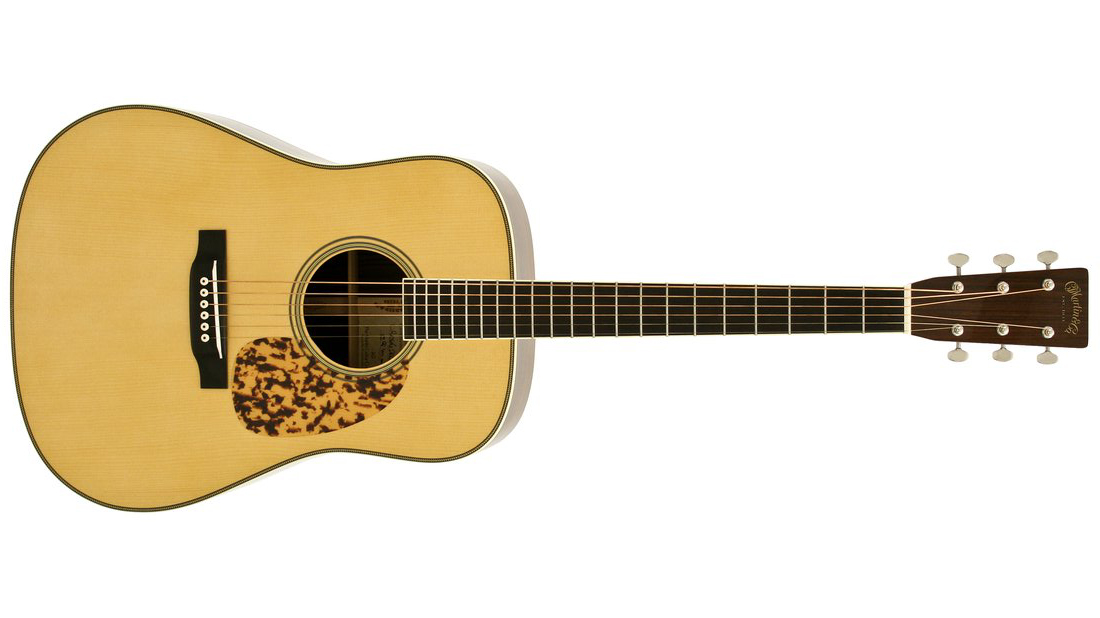
"What's special about mine is, setting aside the fact I've travelled around the world with it and my son kicked it off the bed, it's a Clarence White special edition, so mine is a bluegrass guitar. It's got a wider soundhole. But it occupies such a richness. I'm not a fan of very bright guitars. And I'm not a fan of very dark-sounding guitars and it occupies this kind of middle range that can translate well.
"Whether fingerpicked or strummed, playing a punk song with cowboy chords, it just translates. It's just one of these pieces of iconic American ingenuity. The Martin brand was started Italy, and then it came to the US, but my dad had one growing up and I've been playing mine for about 10 years now."
Juno 6
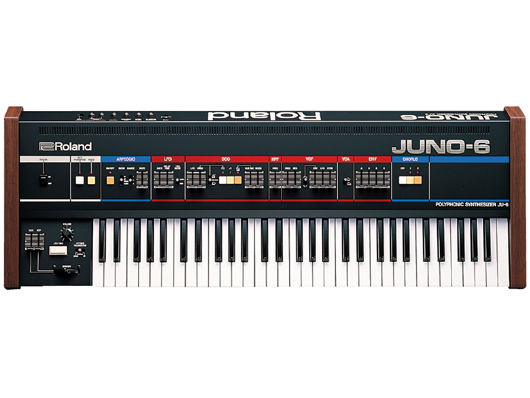
"I like the arpeggiator on it. And I like having to learn a machine so completely that you don't rely on the presets.
I don't claim any mastery or expertise in this world at all, but the Juno is just the quintessential
"Tim is a musician. I came into The Midnight as a songwriter, and so I feel like all the gear, all the synths and all the the music theory; this is stuff I approach as a hobbyist. I'm somebody who's just genuinely excited by this stuff out of pure curiosity.
"I don't claim any mastery or expertise in this world at all, but the Juno is just the quintessential. If the Porsche 911 is the platonic ideal of a sports car and the Submariner Rolex is the ideal of a watch, the Juno 6 is that for The Midnight – it's in its beating heart. So I love it, and I'm challenged by it and it represents for me a journey that I will never master but I'm having so much fun just kind of wandering around on.
Fairfield Circuitry Shallow Water K-Field Modulator
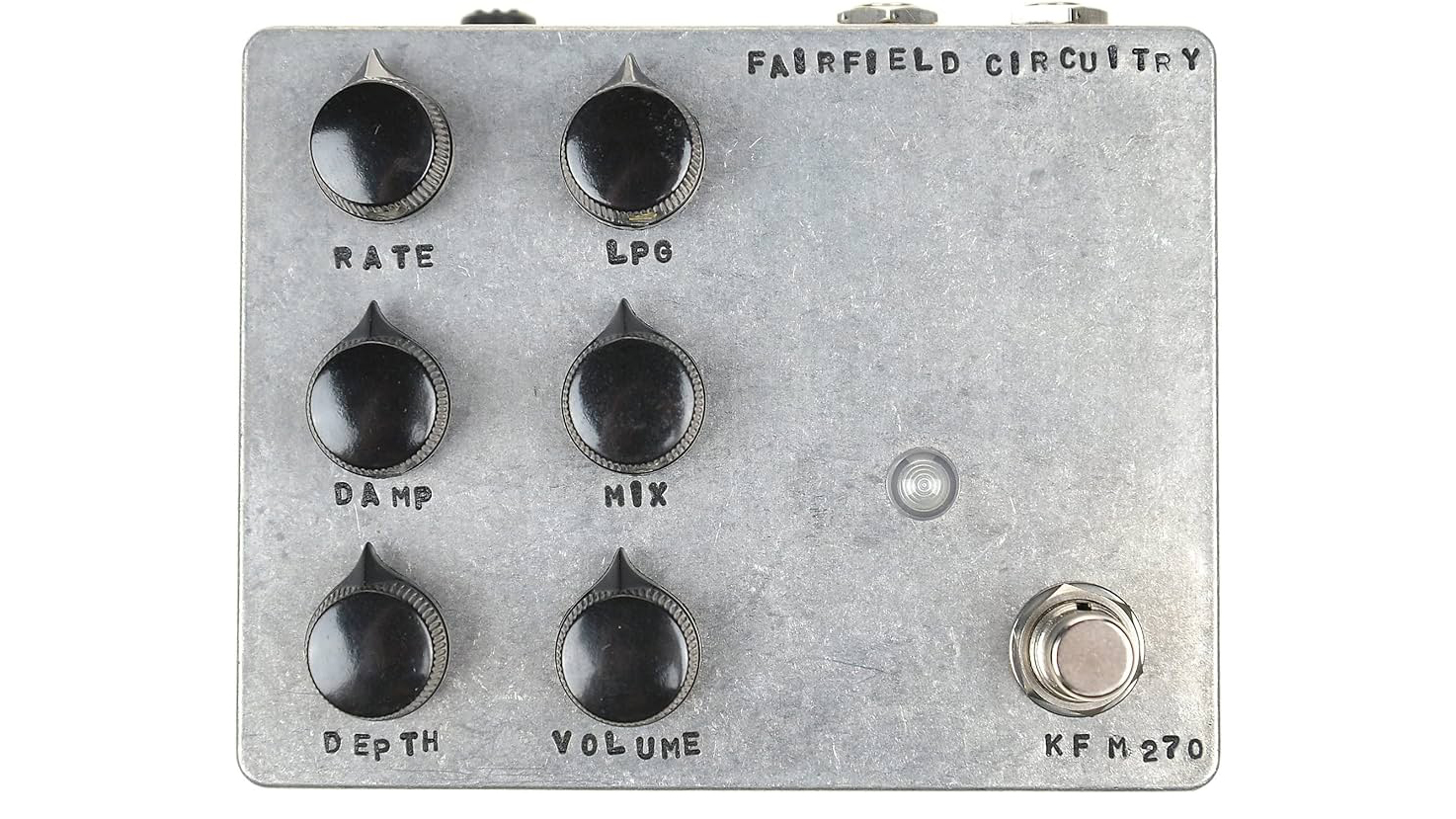
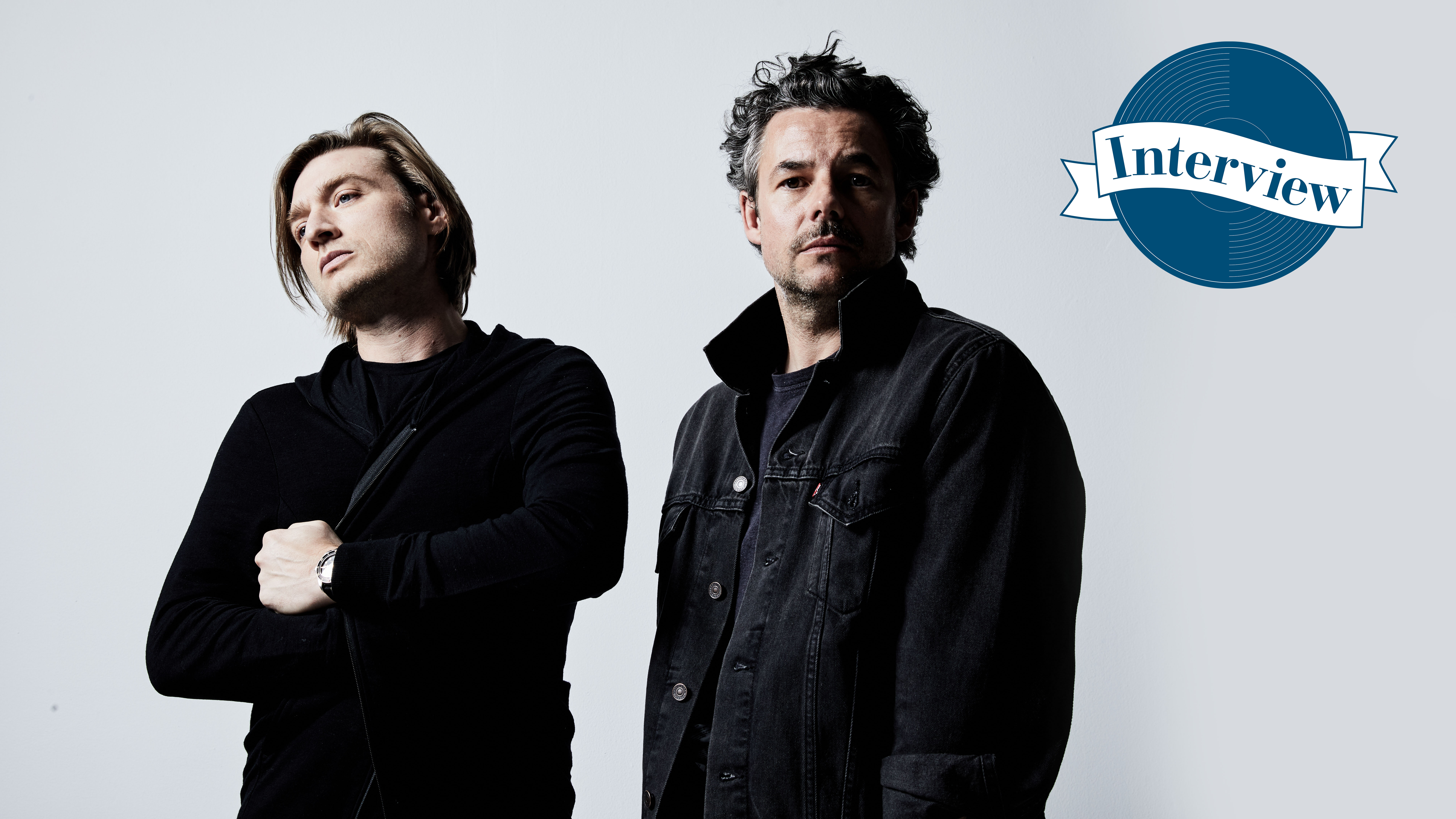
"It's called a K Field modulator – I don't know I don't even know what that is. But it has a low pass gate on it, it works as kind of a chorus pedal. They're temperamental, they're noisy, and I've had it on my board for years now."
"I first put it on my board and I thought, this is a mistake – it's too much of a savage to play nicely with the other pedals, but it's one of those relationships that you have with a piece of machinery that is dynamic, and it grows and as you understand it, it understands you. It's the best guitar pedal ever made, in my opinion, but for lo-fi sounds."
"It's a creative tool, and it's got a J FET boost. So you can do a lot of things with it, but it's made by Fairfield circuitry, I think in Montreal. It's the only pedal I bought two of just because I wanted to see what it sounded like."
- For more information on the Radar Festival visit radarfestival.co.uk, stay up to date with The Midnight at themidnightofficial.com and Tyler Lyle's solo music at tylerlyle.com

Rob is the Reviews Editor for GuitarWorld.com and MusicRadar guitars, so spends most of his waking hours (and beyond) thinking about and trying the latest gear while making sure our reviews team is giving you thorough and honest tests of it. He's worked for guitar mags and sites as a writer and editor for nearly 20 years but still winces at the thought of restringing anything with a Floyd Rose.




